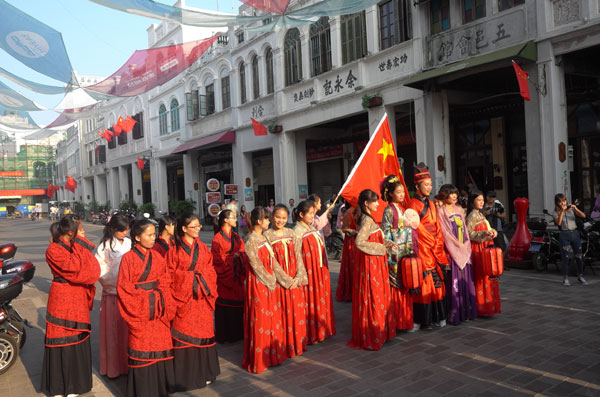 |
|
Themed tours around Hainan province offer visitors a chance to experience ancient fishing villages and historical ports.The China National Tourism Administration has deemed 2015 as the Year of Silk Road Tourism, and provinces along the ancient business route are promoting themed tours.[Photo by Huang Yiming/China Daily] |
BEIJING - The Belt and Road initiatives, China's ambitious trans-Eurasia and across-ocean trade strategy, are among the most extensively referenced topics during the ongoing annual parliamentary session.
Regardless of difficulties, there are clear signals that China is determined to implement the initiatives, which Chinese officials claimed represents a golden opportunity to forge greater cooperation between countries.
"China's diplomacy in 2015 will focus on making progress in the Belt and Road initiatives," Foreign Minister Wang Yi said on Sunday at the session.
China announced Thursday that the board of directors and the senior management team have been formed in the country's $40 billion Silk Road Fund, which will start investment soon.
The fund will invest mainly in infrastructure and resources, as well as industrial and financial cooperation, in an effort to achieve common development and prosperity, Jin Qi, chair of the fund, said at a press conference on the sidelines of the session.
Proposed by President Xi Jinping in 2013, the Silk Road Economic Belt and the 21st Century Maritime Silk Road initiatives aim to improve cooperation with countries in a vast part of Asia, Europe and Africa.
The National People's Congress (NPC), or the parliament, is a platform for the country to create consensus and pool strength for major tasks. This year, it hopes to do so for the Belt and Road initiatives.
Related Stories